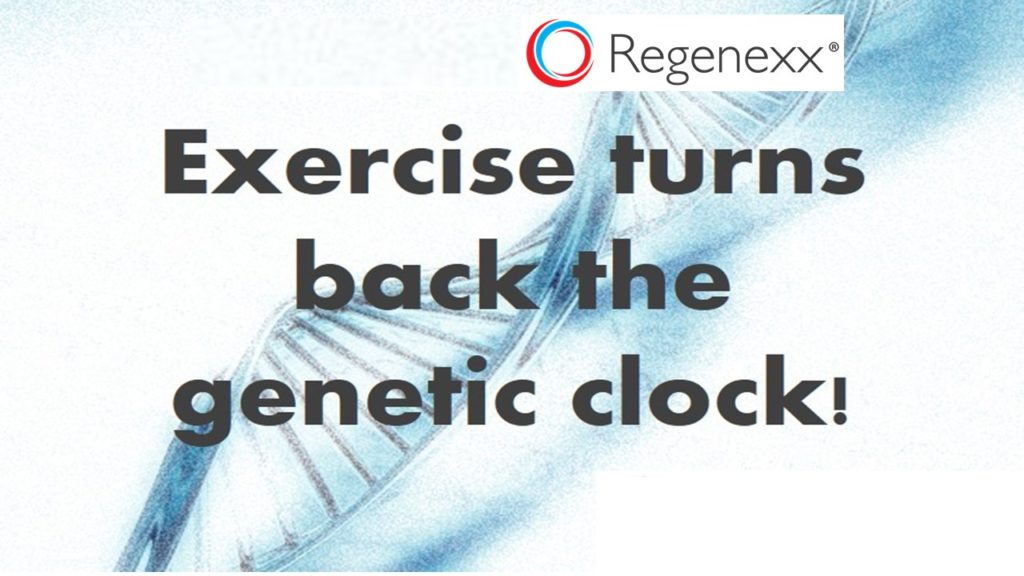Turning Back the Epigenetic Clock with Exercise
These days it seems like exercise is a panacea, as research has shown significant declines in everything from stroke to heart disease to cancer rates in people who exercise regularly. In fact, those little pharma pills you may take for your cholesterol or blood pressure have puny effects compared to getting lots of exercise. A recent study suggests that exercise may do more than help reduce disease, it also turns back the genetic clock!
Epigenetics is the study of how the environment alters our genetics. You may think of your DNA and genes as some unalterable blueprint, but in fact that base code is being modified all the time. One of main processes in epigenetics is DNA methylation. This is how your genetic code gets damaged by adding a small chemical (methyl group) to the strand (at the C and A nucleotides). Methylation can happen when you’re stressed out, eat bad things, or get sick. This process of your body tagging genes can be very powerful. For example, these alterations in your genetic code can be passed down from generation to generation. What’s less known is how your genes respond to good things like physical activity. A new study sought to discover if there were epigenetic exercise benefits by looking to determine whether or not exercise had the potential to alter genes in this way.
For the study, the authors looked at 86 skeletal muscle genes and 86 imprinted genes and adjusted for age, sample size, sex, and tissue variation, and then analyzed them for exercise based DNA Methylation change. The researchers found six areas on the DNA that were modified after exercise. These genes were all involved in muscle maintenance and repair, and meta-analysis found five exercise-associated imprinted loci. In this study, DNA methylation decreased with exercise and was stronger among older people. Interestingly, in older people, some of these changes were part of a microRNA-regulated gene network which suppresses cancer.
The upshot? The results of this study were pretty astounding for how exercise can alter aging at a genetic level! Just think about the possibilities. Since we know that DNA methylation can be inherited, is it possible that hitting the gym now can benefit your grandchildren?

NOTE: This blog post provides general information to help the reader better understand regenerative medicine, musculoskeletal health, and related subjects. All content provided in this blog, website, or any linked materials, including text, graphics, images, patient profiles, outcomes, and information, are not intended and should not be considered or used as a substitute for medical advice, diagnosis, or treatment. Please always consult with a professional and certified healthcare provider to discuss if a treatment is right for you.

